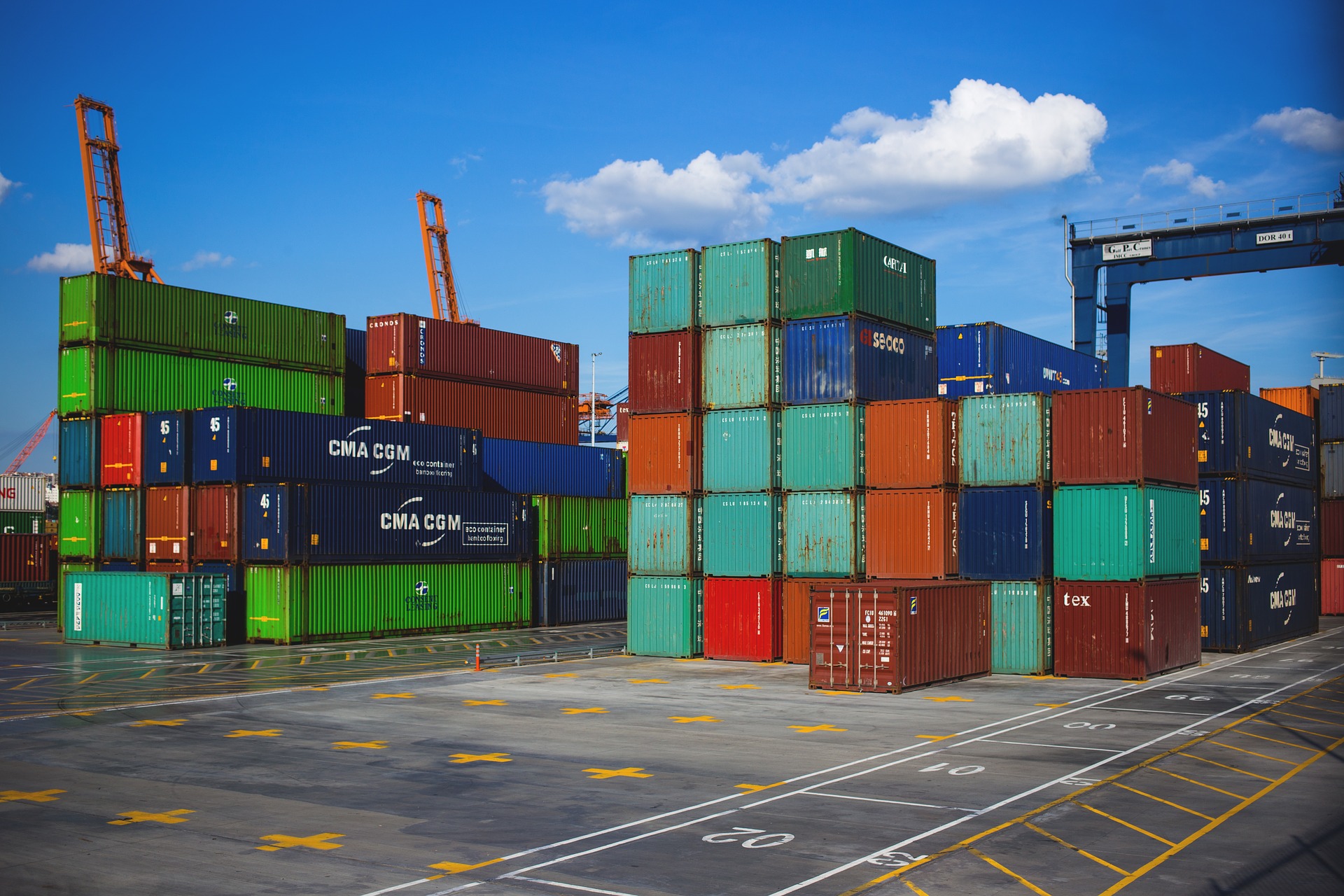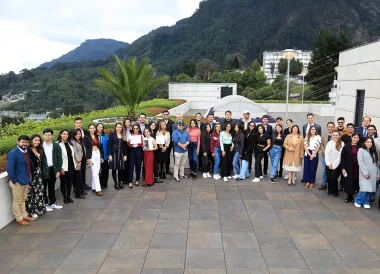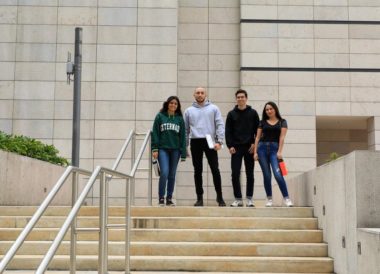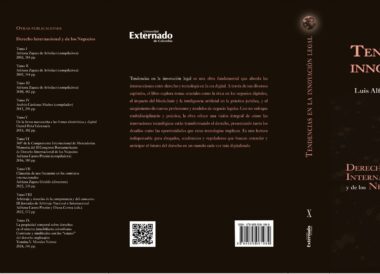Business Law
11 de noviembre de 2020
Decriminalization of drugs: a change of perspective for International Business Law?
Many thanks to professor Juan Miguel Álvarez for his edition of the present article.
On November 4, 2020, US voters in the states of Arizona, Montana, New Jersey and South Dakota passed state ballot measures to legalize recreational marihuana. Furthermore, the State of Oregon became the first in the US to decriminalize the possession of small amounts of hard drugs.
In Oregon, according to The Guardian’s newspaper (2020), people arrested with small amounts of hard drugs may now pay a $100 fine and attend an addiction recovery program, rather than going into trial or jail for these felonies.
Given this new reality, the present article analyzes the legal implications of such initiatives in the context of International Business Law and whether, in the recent future, a general call for decriminalization of drugs may allow international drugs to be traded overseas.
(i) The relevance of Oregon’s Measures: decriminalization of hard drugs
Oregon Measure 110, also known as the Drug Decriminalization and Addiction Treatment Initiative, was approved on November 3, 2020. The initiative supports making personal non-commercial possession of a controlled substance merely a Class E violation (max fine of $100 fine) and establishing a drug addiction treatment and recovery program funded in part by the state’s marijuana tax revenue and state prison savings.
According to literal a) of Section 1, drug addiction and overdoses are a serious problem in Oregon. So, the State acknowledges that current drug strategies implemented so far have been rather ineffective, fostering drug consumption. Therefore, literal b) of this Section notes that “The people of Oregon further find that a health-based approach to addiction and overdose is more effective, humane and cost-effective than criminal punishments. Making people criminals because they suffer from addiction is expensive, ruins lives and can make access to treatment and recovery more difficult”. Changing its approach to drug consumption, Oregon State now considers that it may be more humane and effective allowing consumers to possess small amounts of such drugs, instead of punishing them.
Despite Oregon being the only US-State that has taken this position with regard to all types of drugs, this new regulation invites a further analysis on whether there should be a shift in actual policies taken in the US, and maybe overseas, about how drug consumption may be dealt with.
Also, Sections 2 and 3 of Measure 110 conceive an Oversight and Accountability Council, an authority that shall approve and provide grants for Addiction Recovery Centers, Increasing Community Access to Care, and funding.
On the other hand, Section 11 is amended in the sense of restraining sanction orders and felonies when local inhabitants possess cocaine, heroin, oxycodone, among others. Also, it is now legal to consume such drugs when authorized by Oregon Statutes (ORS) 475.005 to 475.285 and 475.752 to 475.980. These rules states that local inhabitants may be allowed to possess such substances, provided that they are used on a personal basis.
Now, considering this from a commercial approach, production and delivery of these substances are unlawful, except as authorized by ORS 475.005 to 475.285 and 475.752 to 475.980, 475.752 to 475.980, and ORS 475.959, 475.971, 475.975 (1) and 475.976 (1). The latter indicate that “it is and affirmative defense to a charge of violating 475.959, 475.971, 475.975 (1) or 475.976 (1) that the person possessed any of the substances of phosphorus, ammonia, iodine in its elemental form or iodine matrix, for a lawful purpose”.
Nevertheless, it is rather premature to consider that these amendments to Oregon Legal Statutes may suggest a shift in International Law, and or commercial trading. In any case, it is a cornerstone for decriminalization of all types of drugs in the US and, possibly, overseas.
(ii) International Business Law and Commerce: a lawful purpose for the trade of hard drugs?
When analyzing Oregon’s State Law, one, as an International Lawyer, may not understand what a “lawful purpose” exactly means. Also, the expression may give place to different interpretations that may differ one to another. For instance, Legal Crystal’s Legal Dictionary defines this expression as “a purpose not forbidden by law or not unlawful under the statute that enacts the term or it can mean a purpose that is supported by a positive rule of law”. By contrast, The Florida Insurance Licensing Association and American Safety Council define a legal purpose as “the requirement that the object of, or reason for, the contract must be legal”.
Comparatively, in Colombia, article 16 of its Civil Code implies that particular conventions shall not derogate any rules in which public order and moral custom prevail. Therefore, production, delivery and consumption of substances such as drugs are forbidden, albeit strict and exceptional authorizations have been given by Colombia’s Constitutional Court.
Now, given the complexity of International Relations, there has been a surge of a globalization of Narcotics. According to Chantal Thomas, there is a “dramatic increase in contemporary times of international production and consumption”. According to his research, the United Nations Office for Drug Control and Crime Prevention (UNODCCP) reports that the last decades of the twentieth century reported a “global spread of drug trafficking”, making it “now truly a global phenomenon”.
Furthermore, according to Booklet 2 of the 2020 UN World Drug Report, more than 250 million people use drugs worldwide, with indications of increasing cocaine use in Western and Central Europe and mixed trends in the Americas. In countries involved with this widespread problem such as Colombia, according to the 2019 United Nations Office on Drugs and Crime Survey of Territories affected by Illegal Crops, Coca production is still found in approximately 154,000 hectares, with cocaine production remaining stable.
The problem with the actual approach of prohibiting production and delivery of drugs is that it has not been effective. Although local and international efforts have effortlessly banned illegal production and delivery, criminal organizations still control a great part of this business and its consumers.
Certainly, this banning approach has deeply deteriorated social welfare, which is why Oregon inhabitants have faced great health care issues and have endured criminal profiling until this Measure.
Now, although this is just an initiative, it may well be interesting to see how these drugs become legalized, and its commercial use permitted. This situation clearly happened 100 years ago in the US, with alcohol, and in recent times with tobacco and gambling. After its permission, the trade of these products overseas increased, up to the point today they are found all over the world with strict regulations and control.
Also, the revenue provided by the international trade of these substances may well increase State taxes, funds for Health Care initiatives and Programs of Prevention and Social Awareness of them as well.
In conclusion, I consider this recent news may start to change the perception of how such substances impact today’s society. And such change of perception, in turn, may shift the way in which international relations develop nowadays.
References
- Law 84 of 1973. Código Civil de los Estados Unidos de Colombia.
- Sam Levin and Agencies. Theguardian.com. (2000). Oregon becomes first US state to decriminalize possession of hard drugs. Link: https://www.theguardian.com/us-news/2020/nov/03/oregon-drugs-decriminalize-arizona-new-jersey-marijuana
- United States of America. Oregon. (2020). Drug Addiction Treatment and Recovery Act. Measure 110.
- Ballotpedia.org. (2020). Oregon Measure 110, Drug Decriminalization and Addiction Treatment Initiative. Link: https://ballotpedia.org/Oregon_Measure_110,_Drug_Decriminalization_and_Addiction_Treatment_Initiative_(2020)#Measure_design
- Florida Insurance Licensing Association. American Safety Council. Lesson 2. Legal concepts of the insurance contract. 2.1.3. Legal purpose. Link: https://course.uceusa.com/courses/content/405/page_84.htm
- Law Dictionary. Lawful purpose. Link: https://www.legalcrystal.com/dictionary/definition/99325/lawful-purpose#:~:text=Law%20Dictionary%20Home%20Dictionary%20Definition,rule%20of%20law%2C%20Crafter%20v
- Chantal Thomas. (2003). Disciplining Globalization: International Law, Illegal Trade and the Case of Narcotics. Michigan Journal of International Law. Volume 24. Issue 2. Link: https://repository.law.umich.edu/cgi/viewcontent.cgi?article=1260&context=mjil
- United Nations Office on Drugs and Crime. (2020). Booklet 2. 2020 World Drug Report. Drug Use and Health Consequences. Link: https://wdr.unodc.org/wdr2020/field/WDR20_Booklet_2.pdf
- United Nations Office on Drugs and Crime. (2019). Survey of Territories affected by Illegal Crops 2018. September 2010. Link: https://www.unodc.org/documents/colombia/2019/Octubre/Survey_of_Territories_Affected_by_Illegal_Crops_2018.pdf
- com. John Bowden. (2020). Oregon votes to decriminalize heroin, meth, other street drugs. Link: https://thehill.com/homenews/campaign/524382-oregon-votes-to-decriminalize-heroin-meth-other-street-drugs
- Cleve R. Wootson Jr. Jaclyn Peiser. (2020). Oregon decriminalizes possession of hard drugs, as four other states legalize recreational marijuana. Link: https://www.washingtonpost.com/nation/2020/11/04/election-drugs-oregon-new-jersey/
Artículos Recientes
¡Ya está disponible el caso! Segunda versión del Concurso Laboratorio de Estrategia Legal #LSL
Invitamos a los estudiantes de pregrado y postgrado de todas las carreras a presentar [...]
Masterclass Legal Operations: Transformando la Función Legal Empresarial de Guardián de Riesgos a Creador de Valor.
El Departamento de Derecho de los Negocios y la Facultad de Administración de Empresas [...]
Conclusión del Proceso de Reforma al Investor-State Dispute Settlement
En la semana del 12 de julio de 2023, durante la sesión anual de [...]
El Departamento de Derecho de los Negocios de la Universidad Externado de Colombia abre convocatoria para la vacante de Asistente de Investigación
¡Sé parte de nuestro equipo de trabajo! Perfil del cargo: Asistente de Investigación Apoyar [...]
Docente del Departamento de Derecho de los Negocios participó en el libro Blanco de la Asociación de Derecho Internacional
La Asociación de Derecho Internacional (ADI), una de la organizaciones más antiguas y prestigiosas [...]
CRYPTO IN COLOMBIA: PROSPECTIVE 2022
By: Daniel Peña Valenzuela The volatility of the main cryptocurrencies seems to be once [...]
Convocatoria de Monitores.
El Departamento de Derecho de los Negocios se complace en anunciar la apertura para [...]
¿Se avecina una regulación de la Franquicia por parte del Gobierno? ¿O lo impedirá la Corte Constitucional?
Por: Juan Miguel Álvarez* y Diana Marcela Araujo* En diciembre del 2020, el congreso [...]
Operaciones Legales como orquestador del Modelo de Función Legal para la transformación de departamentos jurídicos
Palabras Clave: Operaciones Legales, Estrategia, Departamentos Jurídicos, Transformación, Modelo de Función Legal. La dinámica [...]
Grabación masterclass: Blockchain e Inteligencia Artificial: El Futuro de la Resolución de Disputas
GRABACIÓN DE LA MASTERCLASS La evolución tecnológica está redefiniendo el panorama legal a un [...]
Determinando el Futuro del Derecho: “Tendencias en la Innovación Legal”
La transformación digital está redefiniendo el ejercicio del derecho, exigiendo a los abogados una [...]
Solución a Controversias Comerciales vía Mediación: Algunas reflexiones en torno a la convención de Singapur
El pasado 12 de marzo de 2025, se realizó el Foro de Solución a [...]


















